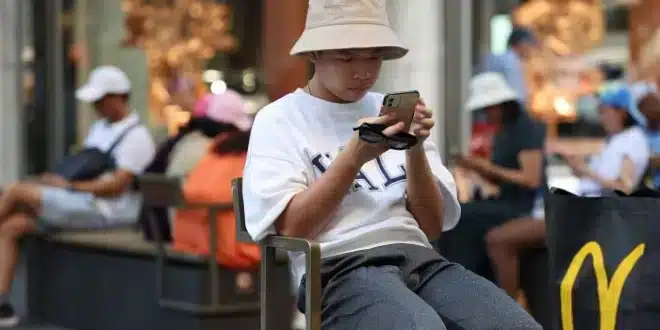Australia is planning to introduce a minimum age requirement for children using social media, citing concerns about the mental and physical health impacts on young people. However, the proposal has drawn criticism from digital rights advocates, who fear the move could drive harmful online behavior underground.
Prime Minister Anthony Albanese announced that the government would conduct an age verification trial before implementing laws to set a minimum age for social media use, likely between 14 and 16. “I want to see kids off their devices and engaging in real-life activities like sports,” Albanese told the Australian Broadcasting Corporation. He emphasized that social media is contributing to social harm, and the new law would aim to address this.
If implemented, Australia would be among the first countries to enforce such restrictions. Similar attempts by the European Union have faced resistance due to concerns about limiting minors’ online rights. Meta, the parent company of Facebook and Instagram, which already imposes a self-regulated minimum age of 13, responded by emphasizing the importance of empowering young users while equipping parents to support them rather than restricting access. YouTube’s parent company Alphabet did not comment, and TikTok was unavailable for response.
Australia has one of the most active online populations globally, with about 80% of its 26 million residents using social media. A 2023 study by the University of Sydney found that three-quarters of Australians aged 12 to 17 had used platforms like YouTube or Instagram.
Albanese’s announcement comes amid a parliamentary inquiry into the societal effects of social media, which has included emotional testimonies about the negative mental health impacts on teenagers. However, concerns have also been raised about whether imposing an age limit might backfire by encouraging young people to hide their online activities.
Daniel Angus, director of the Queensland University of Technology Digital Media Research Centre, warned that the policy could exclude young people from healthy online engagement and push them toward unsafe digital spaces. The eSafety Commissioner, Australia’s internet regulator, also expressed concerns in a June submission, suggesting that restriction-based policies might limit young people’s access to crucial support and push them toward unregulated platforms.
The eSafety Commissioner stated on Tuesday that they would continue working with stakeholders to refine Australia’s approach to addressing online harms, which can affect users at any age. DIGI, a social media industry body, urged the government to consider input from mental health experts, the eSafety Commissioner, and marginalized groups like the LGBTQIA+ community. They emphasized the importance of ensuring that new regulations do not unintentionally push young people into unsafe areas of the internet.


